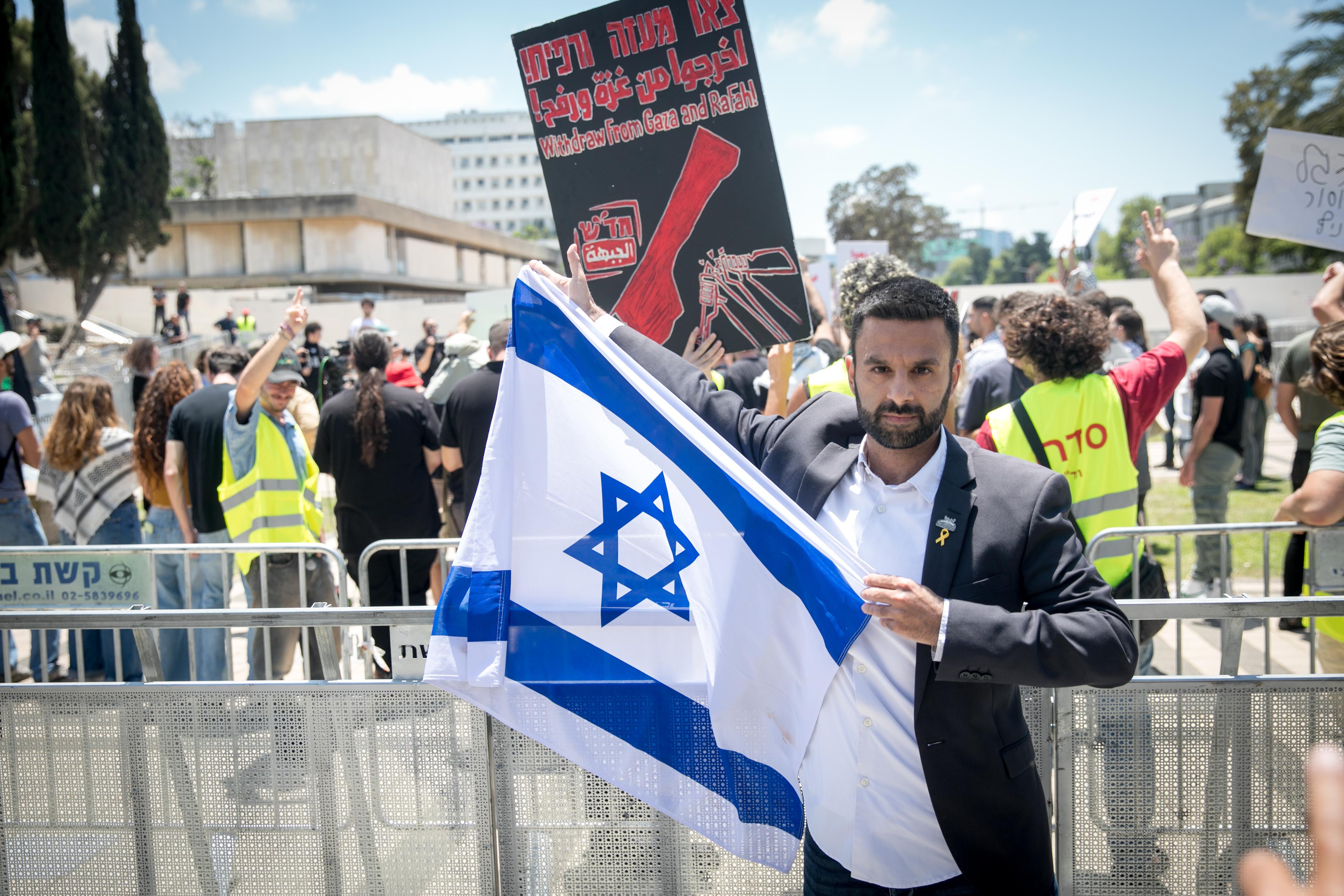Israel is here to stay
WATCH: Yoseph Haddad destroys Anti-Israel protesters at Oxford
Haddad: What's so crazy is that the majority of you have never been in the land of Israel, have never lived in the land of Israel, and then you have the audacity to come to speak to an Arab who was born in Haifa, the largest mixed city in Israel, raised in Nazareth, one of the largest Arab cities in Israel, and then you have the audacity to tell me if I live under apartheid regime? Shame on you, you have no clue what you're talking about.

Arab Israeli Yoseph Haddad is no stranger to the world of Israel advocacy.
A former IDF commander who was seriously wounded protecting Israel and his soldiers, he delivered an impassioned speech defending Israel and challenging anti-Israel narratives.
Speaking at Oxford, Haddad confronted criticisms of Israel with his firsthand experience of Arab-Jewish coexistence and integration in Israeli society. He emphasized the contrast between accusations of apartheid and his own life story.
"I'm an Arab Israeli born in Haifa, the largest mixed city in Israel, raised in Nazareth, one of the largest Arab cities in Israel, and then you have the audacity to tell me if I live under apartheid regime?" Haddad challenged his audience. "Shame on you, you have no clue what you're talking about."
Haddad shared his experience growing up in Israel, describing a childhood where ethnic and religious boundaries were regularly crossed. "At age 11-12, we didn't care if someone was Jewish or Arab - we just wanted to play football together," he recalled. "Christians would invite Jews, Muslims, and Druze to Christmas celebrations. Muslims and Druze would invite the others to their holidays, and Jews would invite us to Passover."
A pivotal moment in Haddad's life came when he chose to volunteer for the IDF, a decision he explained was rooted in his understanding of Israeli society's inclusive nature. "It's the IDF, not the JDF. IDF means Israeli Defense Forces, not Jewish Defense Forces," he explained. "When Hamas, Hezbollah, and the Iranian regime attack Israel, they attack all citizens of Israel, and when the IDF protects Israel, it protects all citizens."
His commitment to service was strengthened after a terrorist attack at Haifa's Maxim restaurant in 2003, where both Arabs and Jews were killed. "Twenty-one Israelis were murdered - Arabs and Jews - and over fifty were injured," he recounted. "From that moment, my decision wasn't 100% anymore - it became one million percent."
Haddad also addressed current events, including the October 7 Hamas attacks and their aftermath. He highlighted the often-overlooked fact that Hamas is holding Arab Israeli hostages, mentioning "Yousef and Hamza, Arab Muslim Israelis who were kidnapped by Hamas on October 7th and are still held hostage after 415 days."
To counter accusations of apartheid, Haddad cited numerous examples of Arab achievement in Israeli society, including Arab judges who have sentenced Jewish prime ministers, Arab bankers heading major financial institutions, and Arab athletes representing Israel internationally.
The speech concluded with a strong assertion about Israel's resilience: "They thought they could destroy Israel, but Israel is here to stay."
Haddad's fierce advocacy is something to behold. His perspective offers a unique voice in the ongoing discussions about Israel-Palestine relations, representing the often-overlooked population of Arab Israelis, many of whom are integrated into and supportive of Israeli society.
His personal story challenges simplified narratives about the conflict and provides insight into the complex reality of Arab-Jewish relations within Israel.